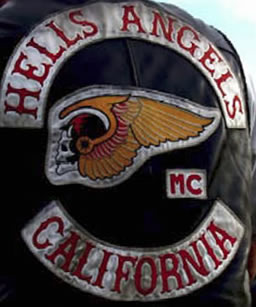What’s supposed to be the West Coast’s Woodstock attracts 300,000 to the Altamont Speedway between Tracy and Livermore in the Bay Area on December 6, 1969. The Rolling Stones headline the event, which also is scheduled to include performances by Crosby, Stills, Nash and Young, the Jefferson Airplane, Santana and the Grateful Dead, who ultimately refuse to take the stage because of mounting violence.
The brainchild of the Rolling Stones, with an assist from the Grateful Dead, the concert lacks the extensive preparation of Woodstock, held four months earlier. The speedway isn’t selected as the concert site until December 4th.

The Hells Angels Motorcycle Club is recruited to provide security. Free beer is their payment, according to most accounts. As the day progresses, the mood of both the crowd and the Hells Angels in front of the stage deteriorates. Fights erupt. Jefferson Airplane lead singer Marty Balin is punched in the head and knocked unconscious by an Angel during the band’s set, prompting members of the Grateful Dead to leave the venue.
During the Rolling Stones’ performance, Mick Jagger asks the crowd to “be cool down in front.” As the band plays “Under My Thumb,” several Hells Angels get into a scuffle with Michael Hunter, an 18-year-old African American, who, along with other audience members, is trying to get onstage with the band.
Punched and pushed back, Hunter pulls a revolver and is stabbed to death by a Hells Angel, who is later tried and acquitted. The Stones are aware of the fight but not the result. Three others die during the concert. Two are run over in their sleeping bags.The other drowns. Some 850 injuries are reported.
Ralph J. Gleason, the San Francisco Chronicle’s seminal music critic, faults both the Grateful Dead and the Rolling Stones for the violence, writing in a December 18, 1969, column:
“Is this the new community? Is this what Woodstock promised? Gather together as a tribe what happened? Brutality, murder, despoilation.”
In the August 1970 Esquire Gleason writes:
“If the name ‘Woodstock’ has come to denote the flowering of one phase of the youth culture, ‘Altamont’ has come to mean the end of it.”
The Grateful Dead album Workingman’s Dead, contains the song “New Speedway Boogie,” which is first performed two weeks after Altamont. Grateful Dead lyricist Robert Hunter says the song is “written as a reply to an indictment of the Altamont affair by pioneer rock critic Ralph J. Gleason.”
The Altamont Speedway closes in 2008.

